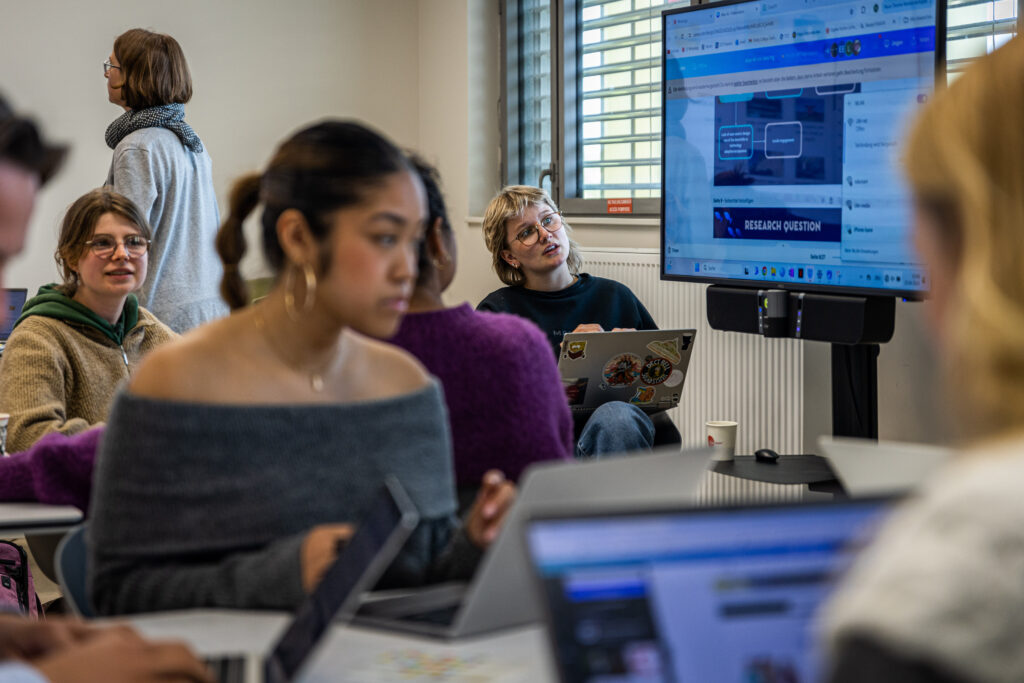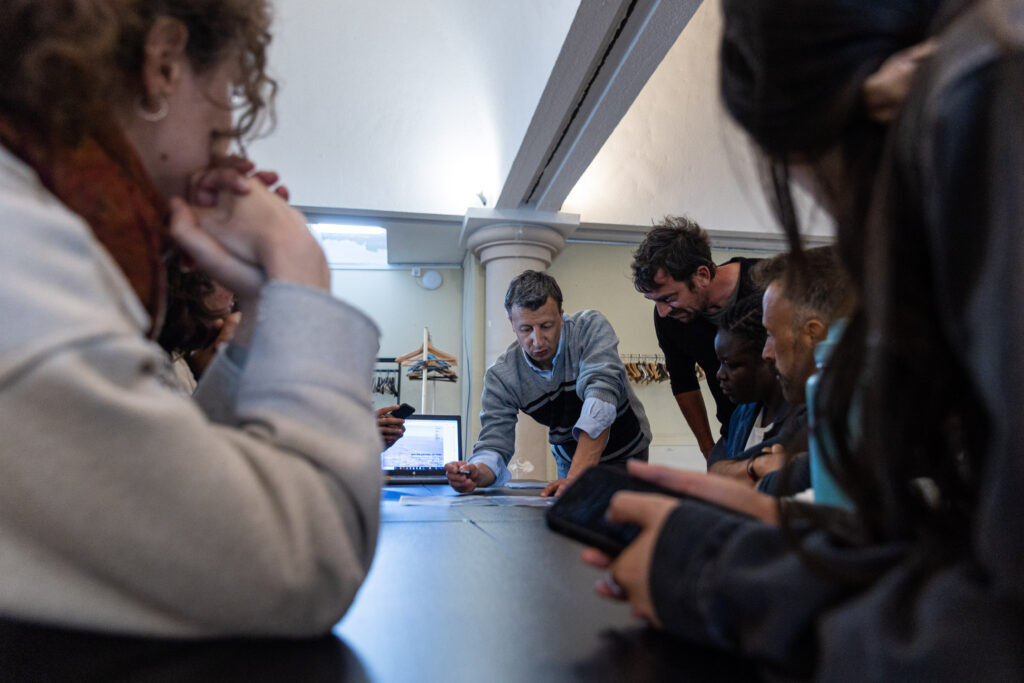Integrating Challenge-Based Learning (CBL) into existing courses transforms traditional teaching methods by engaging students with real-world problems. This approach not only deepens their understanding of academic content but also equips them with critical skills for future success. Here you can find some practical examples carried out at the University of Barcelona (UB) and the University of Montpellier (UM) to inspire you in this endeavour.
Video Testimonial by Sergio Villanueva (UB).
Read more
Challenge-Based Learning (CBL) is an active, student-centred approach that engages learners in solving real-world problems through a structured process of inquiry and action. CBL encourages students to identify meaningful challenges, investigate potential solutions, and take concrete actions. By integrating classroom learning with real-life applications, CBL fosters a deeper understanding of course content and enhances practical skills.
Benefits of introducing CBL in educational programmes:
- Enhanced Engagement: CBL connects academic content to real-world issues, making learning more relevant and motivating for students. This increases engagement as students see the direct impact of their efforts on their communities and the world.
- Skill Development: The CBL approach promotes the development of critical skills such as problem-solving, collaboration, communication, and critical thinking. These competencies are crucial for success in the workplace and prepare students for complex professional challenges.
- Inter- and Transdisciplinary Learning: CBL often involves tackling multifaceted problems that span across various disciplines. This helps students integrate knowledge from different fields and understand the interconnectedness of academic subjects.
- Creativity and Innovation: By encouraging students to explore innovative solutions and take initiative, CBL fosters a mindset of creativity and entrepreneurship. Students learn to think outside the box and develop novel approaches to solve challenges.
- Real-World Impact: Through CBL, students have the opportunity to make a tangible difference in their communities. This hands-on experience not only enriches their learning journey but also helps them build a sense of social responsibility and global awareness.
Implementing CBL in university programs transforms education into an active and purposeful process, equipping students with the skills, knowledge, and mindset needed to thrive in a dynamic and ever-changing world.
CHARM-EU, as a student-centred and challenge-based European University, aims to prompt the introduction of the above principles and values in its educational programmes. As such, the Alliance partners are engaged in implementing CBL courses and activities, both aiming at students and trainers. Below you may find some examples of practical examples already carried out at the University of Barcelona and the University of Montpellier in case you are looking for inspiration to develop CBL within any educational programme you might be involved in.




SOMETHING FOR YOU TOO? CHECK OUT THESE RESOURCES!
Download a practical experience carried out at UB on how to transform an existing course into CBL
Download a toolkit developed at UM to implement CBL in your classroom
Read about Montpellier Cross Thematic Mobility
Read more about CBL in higher education: Gallagher, S. E., & Savage, T. (2020). Challenge-based learning in higher education: an exploratory literature review. Teaching in Higher Education, 28(6), 1135–1157. https://doi.org/10.1080/13562517.2020.1863354
A freshly out of the oven book “Practical Guide to Understanding and Implementing Challenge-Based Learning” by Kenan Dikilitas, Tim Marshall, Masoumeh Shahverdi, 2025, Springer MacMillan.
WOULD YOU LIKE TO APPLY CHALLENGE-BASED LEARNING YOURSELF? SEE OUR GUIDES!
| Step | Action | Who should be involved | CHARM-EU supporting document |
|---|---|---|---|
| 1 | Learn on CHARM-EU challenge-based learning approach | Teaching Staff, Educationalists | · CHARM-EU Pedagogical Guidelines · CHARM-EU Teaching and Learning Strategies Handbook |
| 2 | Learn on CBL | Teaching Staff, Educationalists | · Gallagher, S. E., & Savage, T. (2020). Challenge-based learning in higher education: an exploratory literature review. Teaching in Higher Education, 28(6), 1135–1157. https://doi.org/10.1080/13562517.2020.1863354 |
| 3 | Design training actions for professional development on CBL | Teaching Staff, Educationalists | · UM Toolkit to Implement CBL in your Classroom |
| 4 | Apply CBL transformation to an existing course | Teaching Staff, Educationalists | · UB practical experience |
| 5 | Apply CBL to mobility actions | Mobility Experts, Educationalists, Teaching Staff | · UM Cross Thematic Mobility (MOxMO) · Cross-Thematic Blended Intensive Program Organisation Guidebook |

